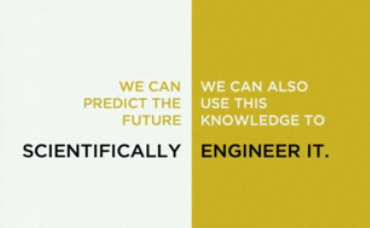

Bruce Bueno de Mesquita, a consultant to the CIA and DOD, uses mathematical analysis to predict the outcome of “messy” human events in this 2009 TED Talk: Three predictions on the future of Iran, and the math to back it up. He claims that we can use mathematics to predict the outcomes of complex negotiations or situations involving coercion (everything that has to do with politics and business).
His modeling is based in Game Theory, which (he says) is based on three assumptions that (1) people are rationally self-interested, (2) that people have values and beliefs, and (3) people face limitations. The CIA verifies the predictive ability of the model, claiming it is correct 90% of the time even when the experts are wrong.
To build a model of the outcomes, he says he need to know (1) Who has a stake in the decision? (2) What do they say they want? (3) How focused are they on one issue compared to other issues? (4) How much persuasive influence could they exert? Using this, we can predict behavior by assuming that everybody cares about two things: the outcome (effect on their career) and the credit (ego). In the model, you must be able to estimate people’s choices, chances they are willing to take, values, and beliefs about other people. Believe it or not, history is not necessary for the model.
Other than the mention of mathematics and a really general look at game theory, there was not a lot of mathematics in this talk. There was one concrete mathematical example that you might be able to utilize in one of your classes (especially if you teach a little combinatorics as part of Probability and Statistics or Liberal Arts Mathematics):
To build a model that predicts the outcome of complicated social events, we need to look at the interactions between all of the people who have input in the decision-making (the influencers). The number of interactions between n influencers is n! If we double the number of influencers in the interaction, does that double the number of interactions? (to use this example, play from 4:24 to about 7:15)



